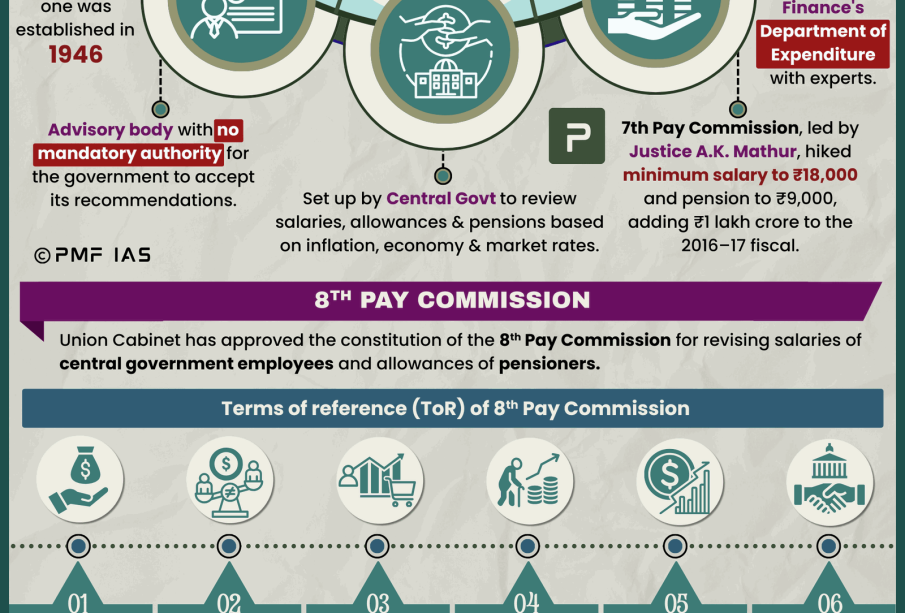Understanding the 8th Pay Commission for Government Employees

Introduction
The announcement of the 8th Pay Commission for Government Employees is a significant event affecting millions across India. The Pay Commission is responsible for reviewing and recommending salary adjustments, making it vital to the financial well-being of government staff. Currently, over 50 lakh government employees and their families await the outcomes of this commission, as they play a key role in the country’s administrative functions and overall economy.
Background
The 7th Pay Commission was implemented in 2016 and brought substantial changes to the pay structure of government employees, including a significant rise in minimum salaries and allowances. As economic conditions evolve, there is a growing demand for subsequent reviews to ensure that employee compensation stays commensurate with inflation and living costs.
Current Developments
As of September 2023, reports indicate that the government is in the early stages of forming the 8th Pay Commission. The proposal aims to modernize salary structures and incorporate technological advancements in public service. Union representatives have been actively voicing that the current salaries should reflect the current economic climate, which includes rising inflation rates and increased living expenses.
The terms of reference for the proposed commission are expected to cover various aspects, including recommendations for salaries, allowances, pensions, and redesigning promotional and increment schemes. One significant aspect likely to be included is the special allowances for employees introduced due to the COVID-19 pandemic, which many government staff feel have not been addressed sufficiently.
Impact on Government Employees
The implementation of the 8th Pay Commission’s recommendations could significantly benefit government employees, particularly in states experiencing economic hardship. Unions are advocating for a fair assessment to ensure that employees receive adequate compensation that reflects their contributions and workloads, especially in sectors that have faced unprecedented demands during the pandemic.
Conclusion
In conclusion, the establishment of the 8th Pay Commission comes at a crucial time, as many government employees face financial challenges. The outcome could lead to improved financial security for millions and ensure that salary structures remain relevant to current economic conditions. Stakeholders eagerly await the government’s further announcements on the commission’s formation and its terms of reference, as these will shape the landscape of government employment in India for years to come.









